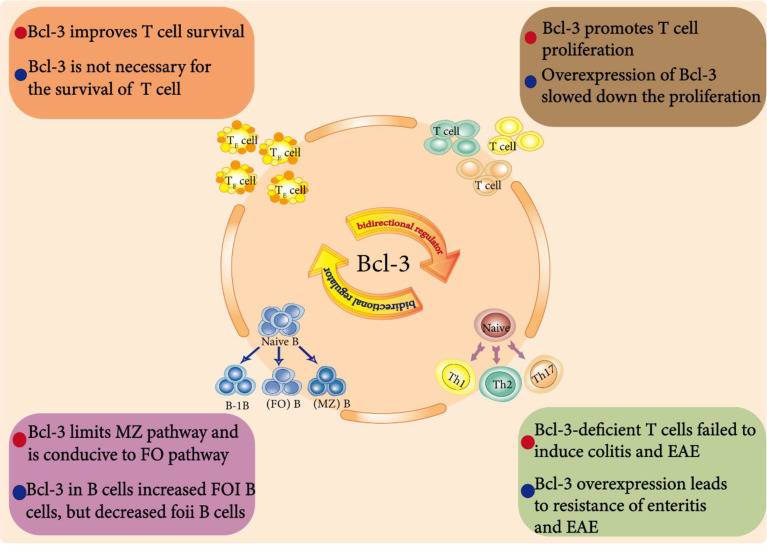Figure 4.
Bcl-3 as a bidirectional regulator in immune cells. Endogenous Bcl-3 is crucial for the development and function of B cells. For example, Bcl-3 regulates the development of splenic B cells. It limits the development of marginal zone (MZ) B cells but is conducive to the development of follicular (FO) B cells. In addition, Bcl-3 is an environment-dependent T cell response regulator that affects T cell survival, differentiation and proliferation and plays a dual regulatory role in them.

